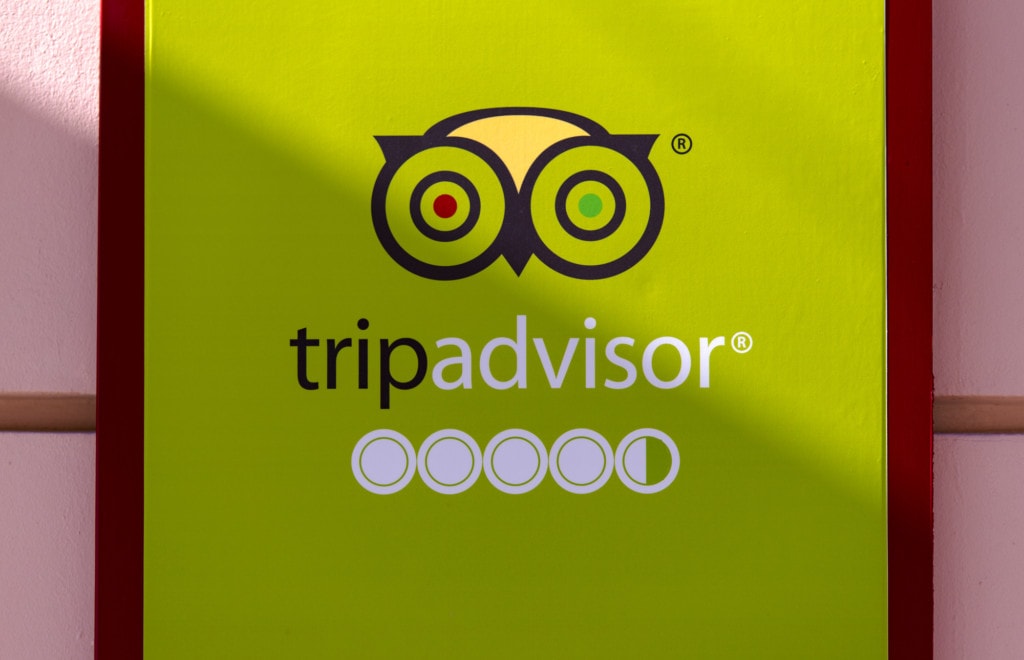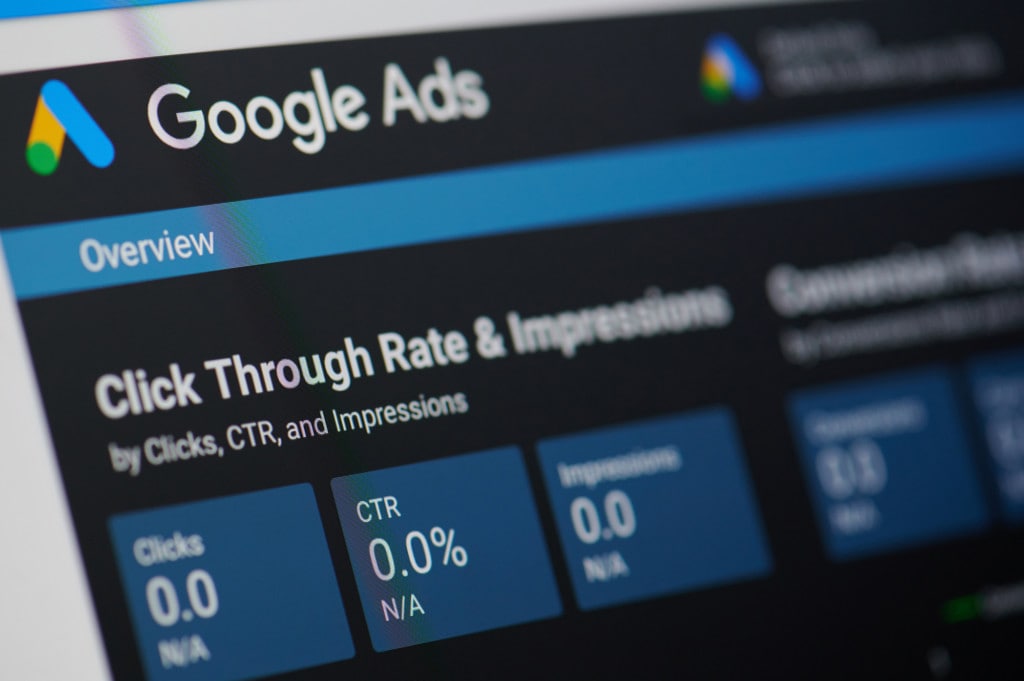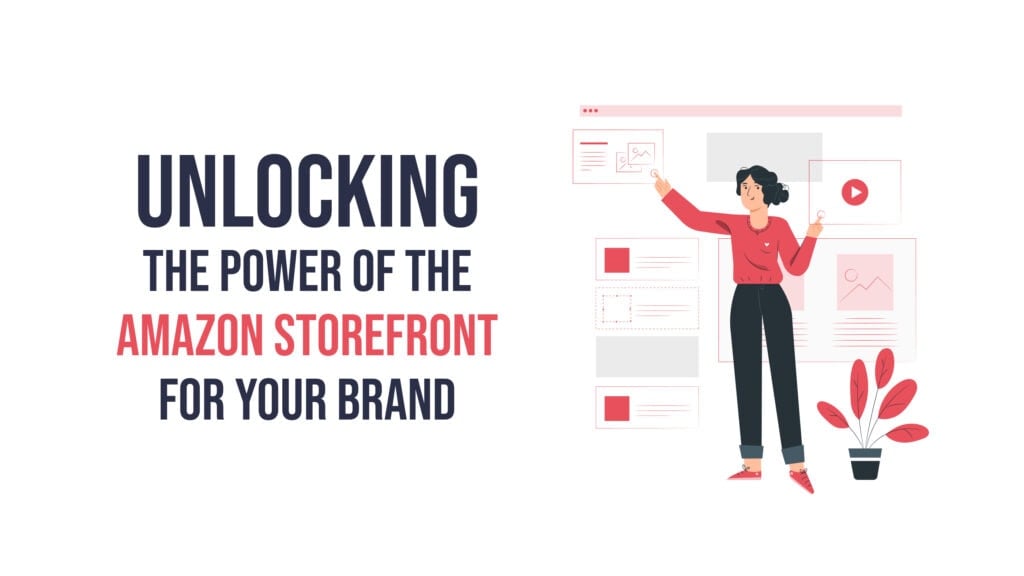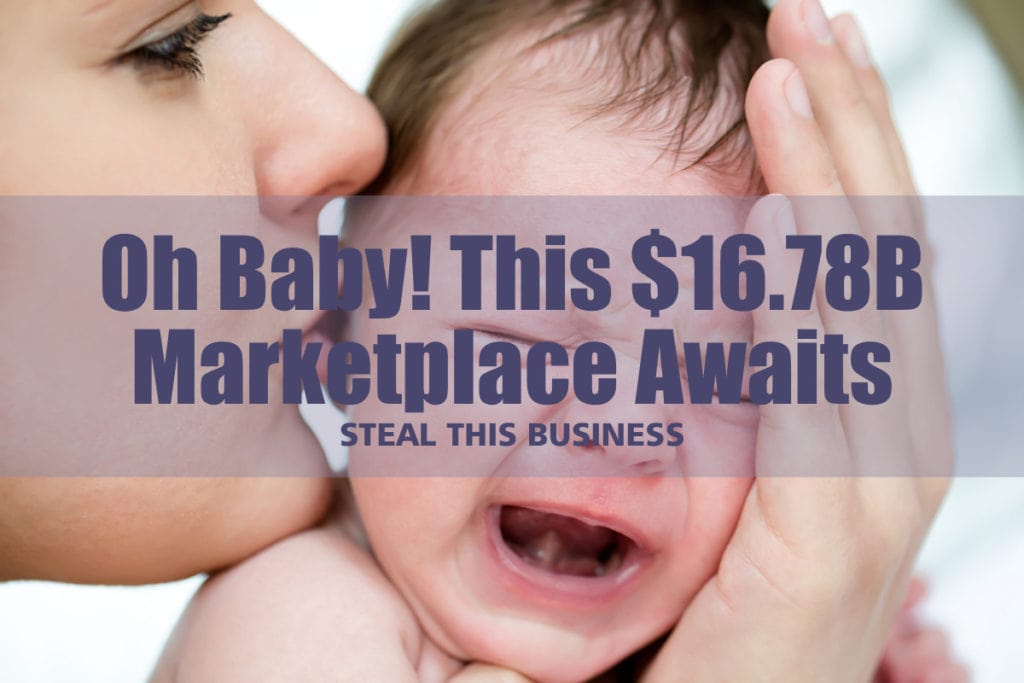How to Create Both Active and Passive Income Using Review Sites
Nobody wants to be a sucker. That’s why we love reading reviews before we buy. If you want to make a bit of extra money—or even a full-time income—review sites could be your next entrepreneurial endeavor.
Even better, you can use a review site to build an audience. When you know and serve an audience well, you create a whole slew of opportunities. You could become an influencer. Maybe you’ll want to write a book or create a course they’d find helpful. Or, you could even build a physical products brand your audience would go wild over. (SPOILER ALERT: That’s how entrepreneurs build seven-figure businesses they can sell.)
Research by BrightLocal shows:
- A whopping 82% of consumers read online reviews before visiting a business for the first time.
- 76% trust these same reviews as much as they would a personal recommendation.
Creating a site where consumers can find out about products or services before they buy could help prevent buyer remorse. If you want to help educate consumers while building both active and passive income, review sites may be just the funnel you need to turn this dream into a lucrative reality.
Review Sites Leading the Way
When thinking about online reviews, which companies pop into your mind first? If you're like most people, you instantly think of Amazon, Yelp, TripAdvisor, or Google Maps. These sites set the gold standard when it comes to collecting honest user reviews, and because of that, their successes are impressive.
Amazon doesn't advertise itself as being a review website. But this giant marketplace has more customer interactions than any other site on the internet. Amazon uses its star rating system for more than just informing buyers, however. It also ranks and filters search results according to which products have the most stars.
Yelp has over 211 million reviews and saw an average of 35 million mobile app users each month for the first quarter of 2020. It's no wonder why the site's Q1 earnings were a cool $250 million.
TripAdvisor claims to be the world's largest travel platform. The popular travel booking site reaches more than 463 million users each month. Travelers can quickly scroll through millions of reviews for airlines, hotels, and restaurants before finalizing their trip.
Google Maps brings in over 11 billion unique users. Morgan Stanley estimates the site will surpass an astounding and surprisingly mirror image of $11 billion in revenue by 2023. The reviews on Google Maps help consumers decide which local businesses to support and which to avoid.

How Can I Write a Review and Make Money?
As you can see by those impressive stats, the top-performing sites prove it's possible to make a sizable income writing online reviews. Of course, you can't expect your bank account to overflow overnight. It takes a bit of marketing and a firm strategy to make money from reviews.
Consumers search online to learn about new products before they decide to purchase. A survey conducted by BrightLocal shows that the average consumer spends over 13 minutes reading online reviews. And the more expensive the item, the more likely they are to read several reviews from various sources. As a review writer, you'll provide your audience with your opinion on how a product functions. Here's what every useful review should include:
• The pros and cons of a product or service
• How the item compares to similar offerings on the market
• The proper way to use the product, including personal experience
• A full description of the item
• A final opinion on whether the product delivers on the promises it makes
While it's possible to earn money from writing reviews, not everyone knows how to do it. Previous customers provide the majority of reviews found online without receiving any compensation. However, entrepreneurs who write for review sites can turn their passion for helping others make smart purchases into a full-time business.
How Do You Create a Review Website?
Starting a review site may be the right business match for you if you have a passion for testing products and sharing your opinion. And it's relatively easy to create a review website free. Even if you don't have a lot of experience with website design, there are plenty of hosting companies ready to walk you through the process. Here's how to build a review website:

1. Choose a niche.
The most successful review sites stick to a single niche. For example, if you have a lot of knowledge about technology, reviewing electronics may be right up your alley. Other popular niches include beauty, diet, and lifestyle. Any reviews you upload need to be relevant to your niche and audience.
2. Buy a domain.
Once you settle on a niche, it's time to select your domain. The best domain names are easy to brand, fast to type, and simple to pronounce. Look for something catchy, and try using keywords that reflect your niche.
3. Build and test your website.
Any website you launch needs to be functional, fast-loading, and easy-to-navigate. Hiring a developer may be the best option if you don't have enough experience to build one. After all, if your site seems spammy, questionable, or challenging to use, your audience will look elsewhere.
4. Add compelling content.
Behind every successful website is great content. You should upload reviews regularly to keep your audience interested. Also, it's essential to update your content frequently to ensure it remains evergreen.
5. Experiment with PPC campaigns.
Of course, you'll need to do some marketing to appear on Google until you build an audience. PPC campaigns can be very helpful for driving traffic to your website.
6. Market, Market, Market.
If it were easy to rank on Google, everyone would do it. However, climbing to the top is difficult, especially for new websites. Start growing your audience from the start using a combination of social media, influencer outreach, and email lists. The more traffic you can bring to your site each day, the more revenue you'll earn each year.

Can I Get Paid to Write Reviews?
Now that you've launched your website, you want to know how to make money from reviews. Running your own site means the sky is the limit of how much money you can make. And yes, it's possible to pay your bills by just writing reviews.
There are two primary ways you can monetize review sites: Adsense revenue and affiliate links. Both are free to sign up for, and both can help you earn active and passive income. We suggest utilizing both options.
Most people are familiar with Google AdSense.
Even if you don't have an account, chances are good you've clicked on one or more links in your lifetime. Google first launched AdSense back in 2003. Since then, countless entrepreneurs have used the service to monetize their website traffic.
The program will place targeted ads on each page when you add the AdSense code to your website. Google uses a series of complex algorithms to ensure the advertisements are relevant to your visitors. Whenever someone clicks on an ad, you earn a small payout. And when we say small, we mean tiny—think pennies. Depending on your traffic, you should expect to make about $0.30-2.32 per click.
Other display ad networks and affiliate links are the way to go if you want to earn a bit more.
The Amazon Affiliate Program (also known as Amazon Associates) lets you earn a commission for referring a customer to make a purchase. Depending on your reach and niche, you can earn up to 10% for each referral. Amazon sweetens the pot even more by extending the commission to include all purchases the customer makes within a 24-hour window.
Again, though, Amazon is stingy with the commissions. You can generate much higher affiliate commissions by registering with other affiliate networks. Most of the good ones require you to have a certain amount of site traffic to qualify, though. You can also contact brands directly to discuss a potential affiliate arrangement.

Many product reviews are evergreen. What does this mean for you? No matter how many years pass, as long as the item is still available for sale, you may be able to earn a passive income from your review. Updating and optimizing older content each year will also help increase your potential for residual pay. After all, people (and Google) crave fresh, updated content.
Do Review Sites Make Good Money?
Sure, reviews are helpful and serve a need. But what you really want to know is if the revenue from affiliate links and ad space will add up. Well, there are plenty of websites that have made online reviews their primary—and sometimes only—income source.
And you better take a seat before you see these numbers.
BuzzFeed, though known for their liberal political stance, pop culture quizzes, and addicting listicles, makes a large portion of its revenue from affiliate links. This digital media company regularly posts product reviews under catchy titles such as "25 Products on Amazon That Inspired Over 1,000 People to Leave a Five Star Review."
What many readers don't realize is that most of their articles are chock-full of affiliate links. Each time a reader clicks and makes a purchase, the company earns a piece of the pie. In 2018, BuzzFeed brought in over $250 million from affiliate sales and licensing revenue alone. Not too shabby for some viral product reviews.
Smaller sites and those just starting out shouldn't expect those results in their first few years. But BuzzFeed's success does prove there is money in writing reviews.
How Often Do Review Sites Get Paid?
As you start drawing traffic to your site, you'll watch your payout amount increase, but when will the money actually hit your bank account? The answer to your question depends on the payment source.
AdSense pays out revenues to review sites once a month via direct deposit. However, you will only receive a payment if you meet the minimum threshold for your region. For example, those living in the United States must earn at least $100 before they can request a payment.

On the other hand, Amazon Affiliates must wait a bit longer to see their funds. Amazon pays review sites on a 60-day delay. For reference, you can request any money you earn in January in late March. The minimum payment amount for affiliates is $10.
How Do I Become a Paid Product Reviewer?
Reviewing products takes time and money. To provide your audience with meaningful content, you'll need to get your hands on the latest products. The sooner your review hot-ticket items, the more money your ads and affiliate links will generate. In the world of online reviews, the early bird really does get the worm.
But, buying tons of products out-of-pocket may eventually become cost-prohibitive—especially with pricier items, like electronics. Luckily, once your website begins to build a following, you may be able to convince brands to pay you to review their products.
Yes, you read that correctly. Brands understand the value of a positive review. Harvard Business School reported a single star rating increase on Yelp improved a company's revenue by 5-9 percent. So, what does this mean for your product review blog? It's possible to become a paid product reviewer by merely mingling with brands.
As your website begins to build a reputation in the industry, companies may reach out to you personally. They may even offer to pay you to post a review of their product. Brands offer product placement sponsorships to influencers with the largest target audiences. If a company chooses to sponsor your review site, it's because they feel your readers meet their ideal demographic. They also trust you'll provide them with a helpful review.
However, before you accept any brand endorsements, there are a few legalities to note.
The Federal Trade Commission regulates how individuals disclose sponsorships with their audience. Failure to do so may result in a hefty fine. Here's what you must state in any paid product review:
• If you received monetary competition to feature a product.
• The name of the company who paid for the endorsement.
There's one snag to keep in mind. Some audiences turn their noses up at brand endorsements. They feel receiving money may alter your opinion of a product. If you want to remain loyal to your audience, always provide a truthful, well-crafted review, even if a company writes you a check. Misleading your readers isn't only gross, but it could end up destroying your reputation. As a paid product reviewer, honesty is paramount.

How Do I Get Paid to Try Products?
Some companies even pay reviewers just to test out their latest innovations. In return, all they ask is for you to provide them with feedback. These positions don't pay very much—about $5-50 per product. But they do provide you with the experience needed to improve your own review writing skills.
It might be tempting to register with paid survey sites if you want to make money on this side hustle. These websites send out surveys to see if you are a match for a particular marketing research study. Once you qualify, the brand will send you the product in the mail, have you fill out a follow-up survey, and cut you a check. It's really that easy. Be aware, however—these products are often top-secret. That means you can't freely share any confidential information about test products to others.
Depending on what the project entails, you may earn a few dollars or several hundred in one sitting. For example, surveys tend to pay the lease, while focus panels offer higher rewards. The purpose of these projects is to make sure the general consumer likes a product before launching it. The brand will use the feedback you provide to make any necessary changes before the product goes public.
Here are some of the most popular survey and test product companies:
• MindField Online: They send out surveys and products in exchange for your opinion. You'll receive a cash incentive after completing a study.
• MyOpinionNow: Qualified panelists received test products for popular household goods in the mail. The company pays via check.
• SheSpeaks: Female members can apply to try products in the beauty, household, baby, and clothing industries. They also have random cash giveaways for their panelists.
• Pinecone Research: This research panel pays $3 for every completed survey and product test. Those wanting to apply for membership need to find a recruiting link online.
Filling out surveys and testing products won't make you rich—you may only earn a few dollars here and there. In fact, that might be one of the slowest, inefficient ways to make money ever. But for some people, it’s a way to generate a few extra dollars. For entrepreneurs who are serious about building a real business, you’re better off building a brand of your own.
Is Being a Product Tester Legit?
While getting free products to test may sound too good to be true, it's not. For marketing companies, it's just another day on the job. However, there are many scams out there, so make sure you research any opportunity fully before sending out personal information.
Legitimate testing companies will never ask you for money upfront. Instead, they will send out the product completely free of charge and pay you in return. All you have to do is provide them with your honest feedback.
How Do You Get Companies to Send You Free Products?
To keep your company review blogs flowing, you need a steady stream of products. However, depending on your own financial situation, you may struggle to pay for the items that will draw in the most traffic. And in the world of online reviews, if you snooze, you lose.
There is a small window of opportunity to try out a new product before other reviewers flood the niche. Being one of the first testers will ensure your website gets the most hits. Thankfully, you may find it's really not that difficult to sweet-talk brands into sending you free products.
Companies want to connect with influencers and reviewers who are familiar with their brand. If there's a new product launch you're eagerly awaiting, consider reaching out to the brand personally. All it takes is a short email to introduce yourself and explain why they should send it to you. Social media is another way you can get in touch with companies you want to review.
Brands often have a PR list of people who they send out new products. Getting on these lists isn't easy, however. It takes some time to build a reputation and create a following. You should also prove to the brand that you already enjoy using their products. Once you get on a company's radar, there's a good chance they'll send you free merchandise.
Even if you politely ask for free products, a brand is under no obligation to respond to or send you anything. If you don't hear back, don't press the issue. Instead, continue building your audience and try again at a later date. The larger your reach, the better likelihood you have of a brand wanting to work with you.
What Companies Send Free Samples?
While landing full-size products isn't always realistic, getting your hands on free samples is. Best of all, most samples provide enough product to form an educated opinion.
Brands use samples to let potential customers try before they buy. Some companies known for having a generous sample policy include Sephora, Olay, Kotex, Gillette, and Proctor & Gamble. Department stores and grocery stores also pass out freebies to customers daily.

Many companies offer free sample promotions on their websites or through social media. These deals often run out quickly, so be sure to act fast if you see a product you want to review for your audience. You can also try asking in-store for free samples.
Where Can I Get Free Samples by Mail?
It's also possible to get a large box of free samples in the mail. Many companies exist solely to introduce consumers to new products, and there is no fee for membership. The most popular are:
• PINCHme uses a proven algorithm to match participants with a variety of free goodies each month. In return, members must complete feedback surveys to remain active.
• Influenster matches users with both sample and full-size products from well-known brands. After receiving products, the company asks members to share their thoughts on social media and other word-of-mouth outlets.
• SampleSource helps people try new products before they commit to buying. They mail out sample boxes each quarter.
Are Free Samples Really Free?
By definition, free samples should not cost you anything. However, some companies offering samples may do so with malicious intent. A good rule of thumb to follow is to never pay for a freebie.
When asking for a free sample, a company should not require you to give them any private information, including a credit card number. You should even be leery if a brand asks you to pay a negligible "processing fee" or "shipping and handling." All too often, these companies take the fee and run without sending you a sample.
Free trial offers are also a huge red flag. Not only is it nearly impossible to cancel these offers before the deadline, but untrustworthy brands may steal your credit card information in the process.
It's best to stick with well-known companies when seeking out free samples. And run away if a sample seems too good to be true—no brand will give out a $500 product without any strings attached.

Can You Make Money from Google Reviews?
Nope, you can't get rich from Google reviews. All reviews on Google are voluntary and uncompensated. However, Google will award you "points" for your contributions. That can earn you some cool swag or grant you access to new products before they're made public. Google has even invited those with the most points to attend their annual summits.
Can I Earn Money from Google Maps?
Although Google has figured out how to turn reviews into a hot commodity, you personally can't make any cash from Google Maps unless you work for the company. Even Google Local Guides provide their services for free. Many do so just to help support small businesses.
The Future of Review Sites
In a world where technology seems to change by the second, you may wonder what will happen to your review sites down the road. Will people still seek out your opinion on products? What will happen to traditional websites?
Here's what we do know. Online shopping will continue to increase for the unforeseeable future. Statista forecasts e-commerce sales will soar to over $599.1 billion by the year 2024. That's just under double what it was in 2019. And as long as people choose to purchase products online, they'll continue to seek out reviews beforehand.
Now, this doesn't mean you can start a few affiliate review sites and forget about them. The most successful entrepreneurs will change with the times. For example, if blogs or the written word become a thing of the past, you may need to switch to video reviews or mobile apps to stay competitive.
Ready to Take the Plunge into Review Sites?
Many of them don't provide enough value to consumers even though there are plenty of niche review websites scattered across the internet. Many review sites seem promising on the surface but lack substance upon further evaluation.

There is room for entrepreneurs who want to create compelling, meaningful reviews for their audience. Continually updating your website with new content will ensure your readers come back for more. And with the addition of affiliate links and AdSense, you may also find yourself earning a regular paycheck. The best sites out there produce both active and passive income, making them a surefire way to exit the rat race for good.
Are you ready to share your opinions with the world and turn a profit in the process? The absolute best advice we can give you is to choose a specific group of people you want to share your reviews with, rather than trying to reach everyone. This way, you can build an audience you love to serve - and they’ll likely grow responsive to your advice. Once you gather a crowd of people you’re serving, you’ll have even more options and opportunities to build a business that changes your whole financial outlook. Check out this free resource we created for you - it’ll help you get started!













